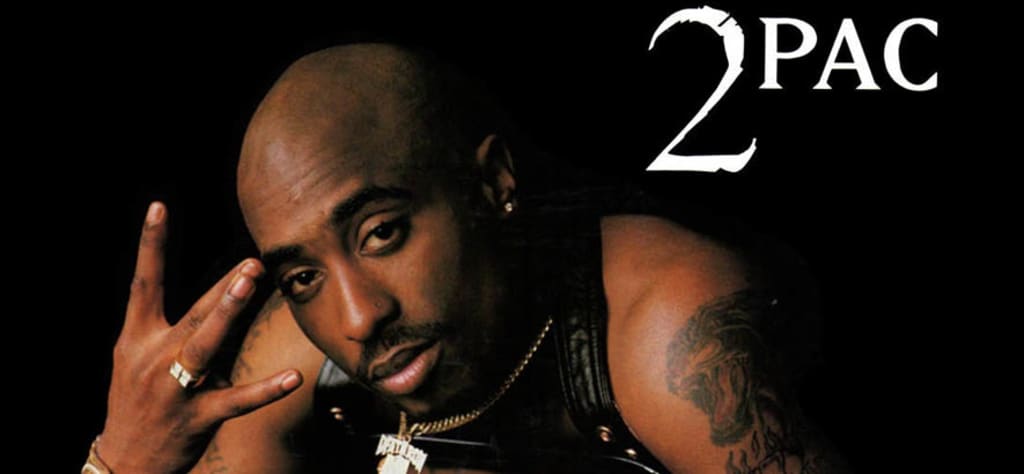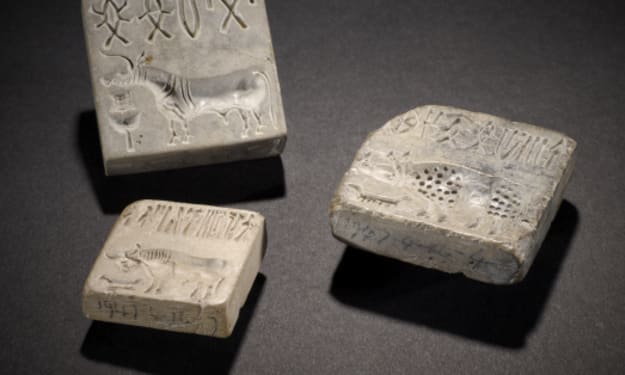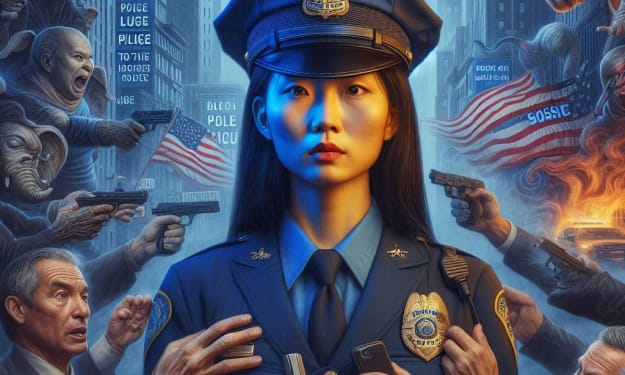Tupac Shakur: The Legacy of a Revolutionary Artist
by David Pieringer

Tupac Shakur: The Legacy of a Revolutionary Artist
Tupac Shakur, known to the world as 2Pac, remains one of the most influential and iconic figures in the history of hip-hop. Born Lesane Parish Crooks on June 16, 1971, in East Harlem, New York, he would later change his name to Tupac Amaru Shakur in honor of Tupac Amaru II, an 18th-century South American revolutionary. Tupac's life was a complex tapestry of artistic genius, social activism, and personal turmoil. His music, poetry, and activism left an indelible mark on the world, making him a symbol of resistance, resilience, and raw talent. This article delves into Tupac's early life, his rise to fame, his contributions to hip-hop and activism, his controversies, and his enduring legacy.
Early Life and Influences
Tupac Shakur was born into a family deeply involved in the Black Panther Party. His mother, Afeni Shakur, was a prominent member of the organization and faced serious charges in the New York Panther 21 trial just a month before Tupac's birth. Growing up in this environment, Tupac was exposed to the struggles and ideologies of the civil rights movement from an early age. These early influences would later shape his worldview and his music.
Tupac's childhood was marked by instability and hardship. His family moved frequently, and they often faced financial difficulties. Despite these challenges, Tupac showed an early aptitude for the arts. He attended the Baltimore School for the Arts, where he studied acting, poetry, jazz, and ballet. It was here that Tupac began to hone his skills as a performer and a poet, laying the groundwork for his future career.
Rise to Fame
Tupac's entry into the music industry came through his association with the hip-hop group Digital Underground. He started as a backup dancer and roadie for the group before making his recording debut in 1991 on the track "Same Song." His undeniable talent quickly caught the attention of industry insiders, and he released his debut solo album, "2Pacalypse Now," later that year.
"2Pacalypse Now" was a bold and politically charged album that addressed issues such as police brutality, systemic racism, and social inequality. Songs like "Brenda's Got a Baby" and "Trapped" showcased Tupac's ability to blend compelling storytelling with incisive social commentary. Despite receiving criticism from some quarters, including then-Vice President Dan Quayle, the album established Tupac as a powerful voice in hip-hop.
Musical Evolution and Impact
Over the next few years, Tupac's career continued to ascend. His second album, "Strictly 4 My N.I.G.G.A.Z.," released in 1993, built on the themes of his debut and featured hits like "I Get Around" and "Keep Ya Head Up." The latter, a heartfelt anthem advocating for women's rights and self-respect, demonstrated Tupac's versatility as an artist who could address both social issues and personal struggles.
Tupac's third album, "Me Against the World," released in 1995 while he was incarcerated, is often regarded as one of his best works. The album's introspective and confessional tone resonated with fans, and it included tracks like "Dear Mama," a tribute to his mother, and "So Many Tears." The album debuted at number one on the Billboard 200, making Tupac the first artist to achieve this feat while in prison.
In 1996, Tupac released "All Eyez on Me," a double album that solidified his status as a hip-hop legend. The album was a commercial and critical success, featuring hits like "California Love," "How Do U Want It," and "2 of Amerikaz Most Wanted." "All Eyez on Me" showcased Tupac's dynamic range, blending hardcore rap with introspective and celebratory tracks.
Activism and Social Commentary
Beyond his music, Tupac was deeply engaged in social and political activism. His upbringing in the Black Panther movement imbued him with a strong sense of justice and a commitment to fighting systemic oppression. Tupac's lyrics often reflected his activist roots, addressing issues such as poverty, racial discrimination, and the criminal justice system.
Tupac's activism extended beyond his music. He founded the group Thug Life in 1993, which aimed to provide support and guidance to young people in urban communities. The group's manifesto, known as the "Thug Life Code," was a set of principles designed to promote respect, community solidarity, and non-violence among gang members.
Tupac's engagement with social issues was not without controversy. His outspoken nature and willingness to challenge authority figures made him a target for criticism and legal troubles. Despite these challenges, Tupac remained committed to using his platform to advocate for change and to speak out against injustice.
Legal Troubles and Controversies
Tupac's life was plagued by legal issues and controversies that often overshadowed his artistic achievements. His first major legal trouble came in 1993 when he was charged with sexual assault. He maintained his innocence, but the case resulted in a conviction, and Tupac was sentenced to prison in 1995. This period of incarceration profoundly affected him and influenced the tone of his subsequent work.
In addition to his legal battles, Tupac was involved in several high-profile conflicts within the hip-hop community. His feud with fellow rapper The Notorious B.I.G. and the East Coast-West Coast rivalry became central narratives in the 1990s hip-hop scene. These conflicts were exacerbated by media coverage and personal animosities, contributing to an increasingly volatile environment.
Despite these controversies, Tupac continued to produce music and remained a central figure in hip-hop. His ability to channel his personal struggles and societal critiques into his art endeared him to fans and cemented his status as a cultural icon.
Death and Posthumous Influence
Tupac Shakur's life was tragically cut short on September 13, 1996, when he died from injuries sustained in a drive-by shooting in Las Vegas, Nevada. His death shocked the world and left a lasting impact on the music industry and his fans. Despite numerous theories and investigations, the circumstances surrounding his murder remain unsolved.
Following his death, Tupac's influence only grew. Several posthumous albums were released, including "The Don Killuminati: The 7 Day Theory," which he completed shortly before his death under the alias Makaveli. These albums continued to showcase Tupac's lyrical prowess and his ability to address a wide range of themes, from personal introspection to political activism.
Cultural and Academic Legacy
Tupac's impact extends beyond his music. He is often studied in academic settings for his contributions to literature, culture, and social justice. His poetry, compiled in the book "The Rose That Grew from Concrete," reveals a more introspective and vulnerable side of Tupac, highlighting his literary talents and his ability to articulate profound emotions and ideas.
In popular culture, Tupac remains a symbol of resistance and resilience. His image and music continue to inspire new generations of artists and activists. Films, documentaries, and books about his life and legacy ensure that his story remains relevant and accessible. Notable works include the biopic "All Eyez on Me" and the documentary "Tupac: Resurrection," which provide comprehensive insights into his life and career.
Enduring Influence on Hip-Hop
Tupac's influence on hip-hop is immeasurable. His ability to blend raw, unfiltered emotion with incisive social commentary set a new standard for the genre. Artists across generations have cited Tupac as a major influence, and his impact can be seen in the work of contemporary hip-hop artists who continue to draw inspiration from his music and message.
Tupac's themes of struggle, resilience, and the quest for justice resonate deeply within the hip-hop community and beyond. His willingness to confront difficult topics and to speak truth to power has left an indelible mark on the genre, shaping its evolution and expanding its reach.
Personal Relationships and Inner Struggles
Tupac's personal relationships and inner struggles were integral to his life and his art. He had close friendships with notable figures in the music industry, including Jada Pinkett Smith and members of the Digital Underground. These relationships provided support and inspiration throughout his career.
Tupac's life was also marked by intense emotional and psychological struggles. He grappled with the pressures of fame, the trauma of his upbringing, and the constant scrutiny of the public eye. These struggles often surfaced in his music, where he candidly explored themes of pain, betrayal, and the quest for redemption.
Conclusion
Tupac Shakur's legacy is a testament to the power of art to inspire, provoke, and transform. His life was a complex interplay of talent, activism, and controversy, and his music continues to resonate with audiences around the world. Tupac's fearless exploration of social issues and his commitment to speaking out against injustice have cemented his place as one of the most important figures in the history of hip-hop.
More than two decades after his death, Tupac's influence remains undiminished. His work continues to inspire new generations of artists, activists, and thinkers who seek to challenge the status quo and to use their voices for change. Tupac Shakur's life and legacy remind us of the enduring power of art and the importance of standing up for what we believe in, even in the face of adversity.
About the Creator
David Pieringer
Welcome to my page! I'm a dedicated writer and student with a passion for both education and sports. Balancing my love for learning with my athletic pursuits, I strive to excel in everything I do.
Enjoyed the story? Support the Creator.
Subscribe for free to receive all their stories in your feed. You could also pledge your support or give them a one-off tip, letting them know you appreciate their work.






Comments (1)
Hey, just wanna let you know that this is more suitable to be posted in the Beat community 😊